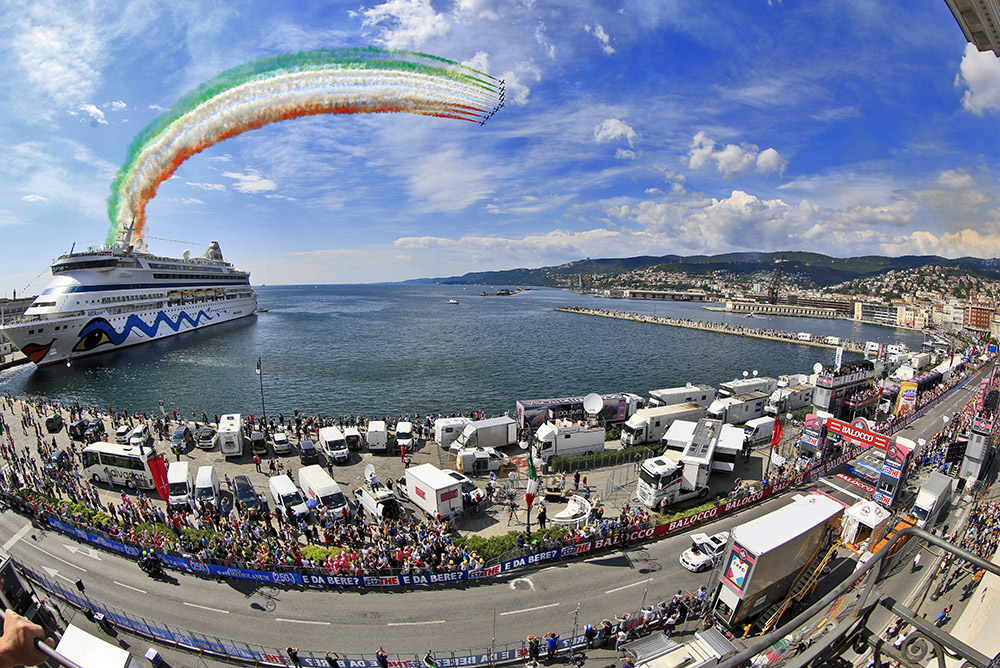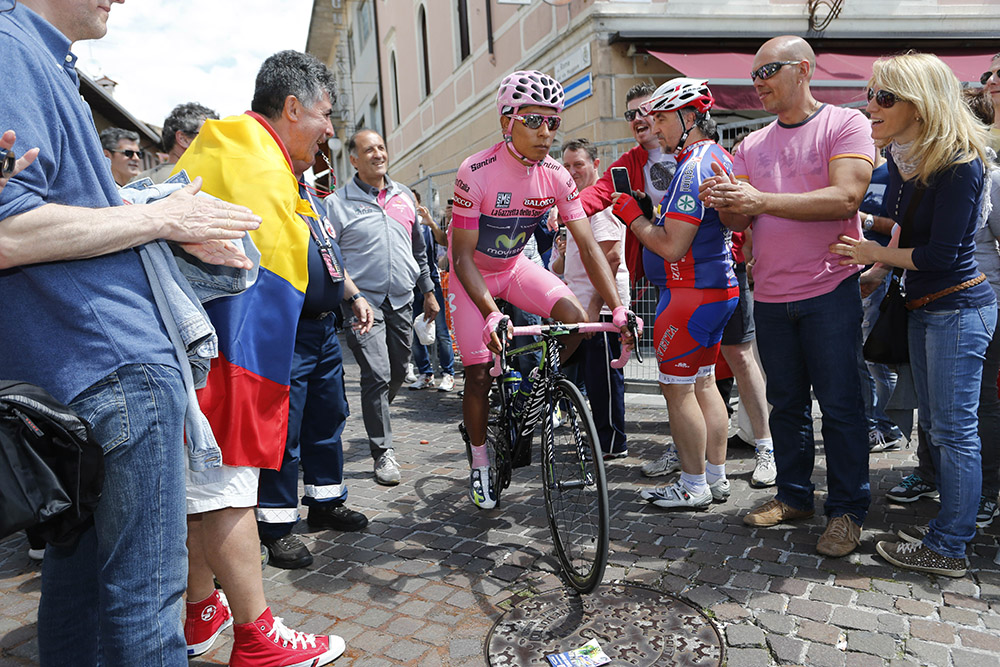Italian cycling in crisis
Cycle Sport looks at the problems affecting the races and teams in Italy, how that's linked to the country's ailing economy and the effect that's having on the younger generation and which sport they chose to take up.

The peloton enters Trieste on stage twenty-one of the 2014 Giro d'Italia

The Giro d’Italia. Fausto Coppi. Bianchi. Just three of the many household names written into Italy’s long and illustrious cycling history. It’s a history that spans generations, races, industry and icons, but since the late 1990s around the time of the cessation of the multi-coloured Mapei team in 2002, the state of affairs in Europe’s boot has greyed.
No longer do Italians rule this two-wheeled sport. Instead, cycling is suffering like the country’s economy with its €2 trillion public debt. What was once one of the pillars of the sport appears to be crumbling away
Tradition alone is failing to hold the pieces in place. Italian cycling lacks sponsorship money for teams and races, and from the outside appears riddled or reeling from doping scandals. While it may have produced 2014 Tour de France winner Vincenzo Nibali, it is struggling to nurture others.
A lack of teams and races at home make it difficult for budding cyclists to get started, and further compounds the problem.
Local companies have smaller budgets due to a global economic crisis and are not encouraged to reach out their arms to give sponsorship dollars for any level of team or race if cyclists are not winning.

How did one of the greats fall to his knees like the faithful in Vatican City? And what will it take for cycling in Italy to rise again? Is it even possible?
Let us turn the clock back 10 years to when cycling’s governing body, the Union Cycliste Internationale (UCI), created the ProTour — the predecessor to the current WorldTour.
Get The Leadout Newsletter
The latest race content, interviews, features, reviews and expert buying guides, direct to your inbox!
The new series did away with the division one, two and three trade teams and created ProTour teams that were guaranteed rights to race in major one-day and stage races.
Italy looked good on both sides. In 2004, it had six teams in the 30-team division-one ranks and with the start of the ProTour in 2005 it had four of the 21 teams: Domina Vacanze, Fassa Bortolo, Lampre-Caffita and Liquigas-Bianchi.
With Cannondale, formerly Liquigas, closing its team to sponsor Jonathan Vaughters’s Slipstream project in the USA, Italy will field only one team of the 18 in the 2015 WorldTour.
The country that gave rise to legends such as Fausto Coppi, Gino Bartali and Fiorenzo Magni, as well as famous bike brands from Colnago to Pinarello slipped from a 20 per cent to a six per cent share. Its neighbour France, however, maintains 17 per cent. A lethal combination — doping and economics — appear to be the cause of this drop.
Read the rest of this feature in the November edition of Cycle Sport magazine, on sale in WHSmiths and all good newsagents. Cycle Sport is also available to download from the App Store, Google Play, www.zinio.com and on Kindle Fire and nook devices. Just search 'Cycle Sport magazine' Priced £4.75

No Goodbyes: David Millar's Grand Tour finalé

Thank you for reading 20 articles this month* Join now for unlimited access
Enjoy your first month for just £1 / $1 / €1
*Read 5 free articles per month without a subscription

Join now for unlimited access
Try first month for just £1 / $1 / €1
Gregor Brown is an experienced cycling journalist, based in Florence, Italy. He has covered races all over the world for over a decade - following the Giro, Tour de France, and every major race since 2006. His love of cycling began with freestyle and BMX, before the 1998 Tour de France led him to a deep appreciation of the road racing season.
-
 'It took everything' - Puck Pieterse outclimbs Demi Vollering to win La Flèche Wallonne
'It took everything' - Puck Pieterse outclimbs Demi Vollering to win La Flèche WallonneDutch 22-year-old shows Classics pedigree with first one-day victory
By Tom Davidson
-
 Tadej Pogačar flies to dominant victory at La Flèche Wallonne
Tadej Pogačar flies to dominant victory at La Flèche WallonneSlovenian takes second win at Belgian classic ahead of Kévin Vauquelin and Tom Pidcock
By Tom Thewlis